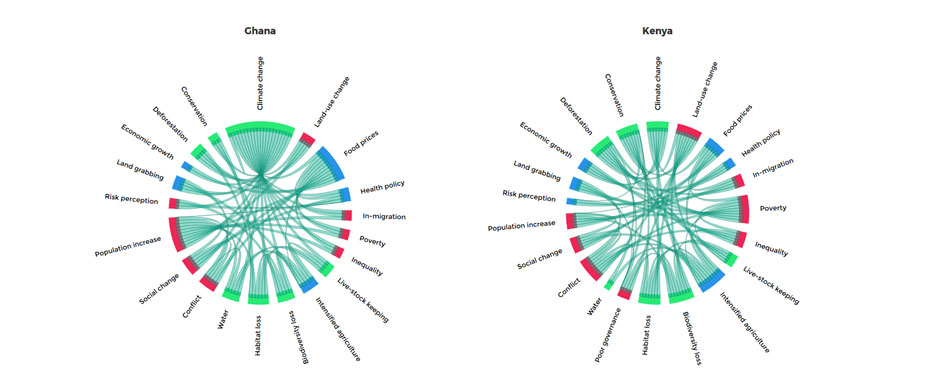One Health Day, on Friday 3 November 2017, draws attention to the interconnectedness of human, animal and environmental health.
More than 60 per cent of emerging infectious diseases affecting people are zoonoses – originating in wildlife or livestock. Their spread is driven by climate change, land-use change and the massive expansion of towns and cities, among other factors. As well as presenting a threat of global disease outbreak, as in the cases of, for example, Ebola or avian flu, these zoonoses can devastate the lives and livelihoods of some of the poorest people.
One Health recognises this – and the consequent pressing need for a holistic approach to disease research, policy and control. Only by collaborating across sectors and disciplines, and considering animal and environmental health alongside human health, can zoonotic disease be tackled, and better and more effective poverty and public health interventions emerge.
STEPS Centre researchers are currently providing social science insight in two One Health research projects: the Livestock, Livelihoods and Health programme in Tanzania, and the Myanmar Pig Partnership.
Find out more
If you’re interested in One Health, explore our resources:
- One Health for a changing world: zoonoses, ecosystems and human well-being – a special issue (open access) of Philosophical Transactions of the Royal Society B, co-edited by STEPS Centre Director Ian Scoones
- One Health: Science, politics and zoonotic disease in Africa – edited by Kevin Bardosh, this book (available to buy online) includes chapters from researchers who worked with the Dynamic Drivers of Disease in Africa Consortium (DDDAC)
- One Health stories – a multimedia album of case studies from the Dynamic Drivers of Disease in Africa Consortium
- Disease scenarios – a series of interactive maps showing how drivers of disease interact, developed by the Dynamic Drivers of Disease Consortium
